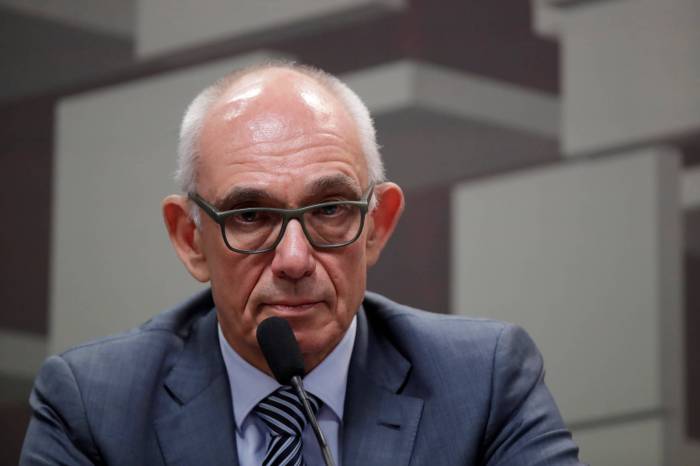By Saikat Chatterjee and Sujata Rao
LONDON (Reuters) – Demand for dollars via the currency derivative markets surged to the highest levels in years on Thursday in a sign that coronavirus-induced economic stress is starting to manifest itself in a broad scramble for greenback funding.
In a eerie throwback to the dark days of the 2008 financial crisis when banks rushed to secure dollar funding amid a credit markets seize-up, spreads on three-month euro-dollar and dollar-yen swap spreads were at their widest since 2017.
A widening spread indicates that non-U.S. borrowers are prepared to pay a premium to access dollar funds and further such strains on swap markets could pressure the U.S. Federal Reserve to up liquidity operations such as repos and swap lines.
(Graphic: Dollar funding – https://fingfx.thomsonreuters.com/gfx/mkt/13/3321/3282/Dollar%20funding.png)
“Dollar liquidity is king in times of crisis and that is what the blow-out in swap spreads is telling us,” said Kenneth Broux, a currency strategist at Societe Generale in London.
The surge caught market participants by surprise and helped the dollar reverse earlier losses in the spot market. It rose 0.4% against a basket of currencies <.=USD>, having fallen to 18-month lows earlier this week.
Three-month euro/dollar cross currency basis swap spreads jumped to a late-2017 high of 65 bps
Moves were even bigger in yen swap spreads, where three-month spreads were at their highest since December 2017 at 89 bps, double Wednesday’s closing levels.
Euro-dollar swaps had widened as much as 160 bps during the European debt crisis in 2011/12 and the global financial crisis in 2008/09 and most analysts agree that global liquidity is far less constrained these days.
But signs are mounting that companies, especially in sectors such as travel, leisure and retail that are hardest hit by the coronavirus-induced slump, could face funding issues. Boeing for instance
Broux of Societe Generale said this could mark a move into the next selloff stage; meaning companies now scramble for dollar funds, after a three-week long worldwide rout in shares and riskier bonds.
“If you are a company and everyone is staying at home and not spending, you can’t sell or export but you have to still pay loans and suppliers,” he said, citing the case of Boeing.
The worries are reflected also in the soaring cost of insuring against default by companies and banks in the credit default swap market.
“The meltdown in the real economy is severe enough that it could push banks to the limit and that’s what the cross currency basis is telling us,” said Stephen Gallo, European head of FX markets at BMO Financial Group.
In an effort to stem the damage, major central banks have embarked on a policy easing spree in recent days, though analysts remained divided on the impact of the easing.
The U.S. Federal Reserve cut interest rates by 50 bps last week followed by a similar move by the Bank of England on Wednesday with the European Central Bank approving fresh policy easing measures.
The New York Federal Reserve announced on Wednesday, the second time this week, it would substantially increase the amount of liquidity it provides to overnight lending market — a signal it will do what it can to keep money markets running smoothly.
(Reporting by Saikat Chatterjee and Sujata Rao; Editing by Giles Elgood)

















